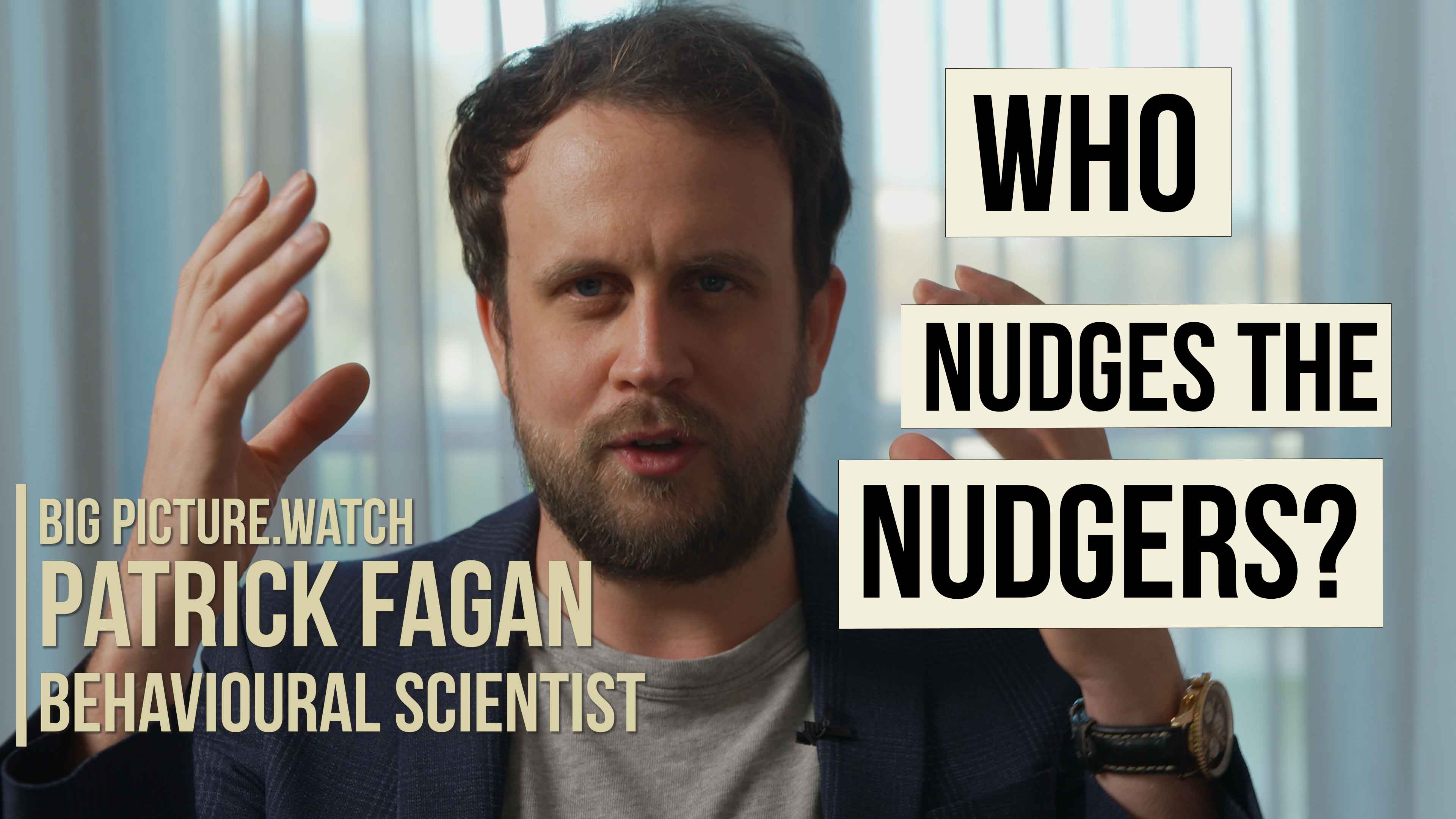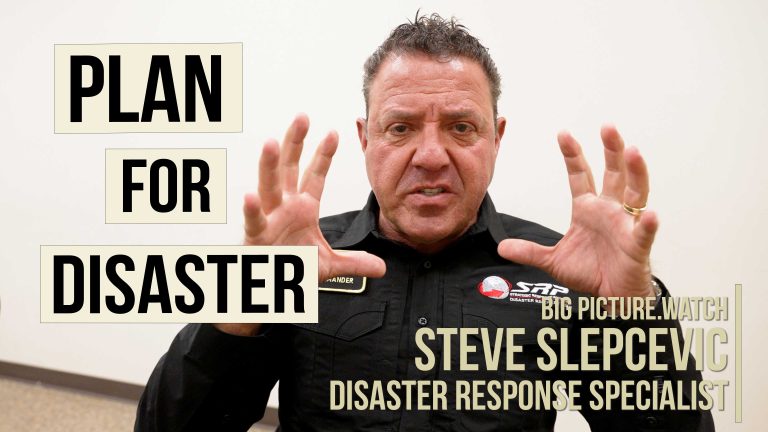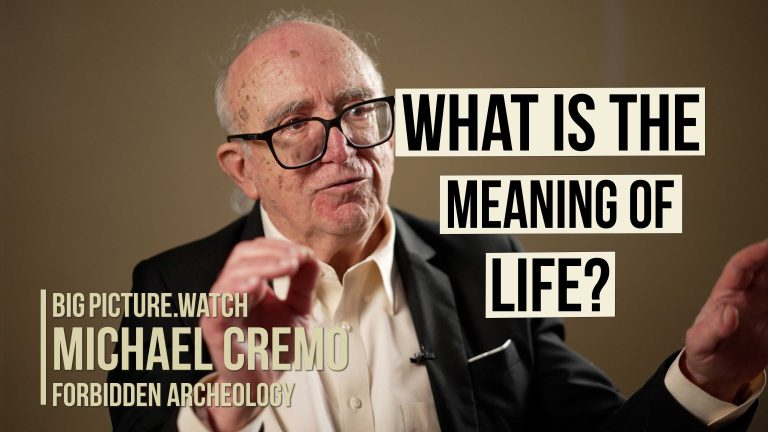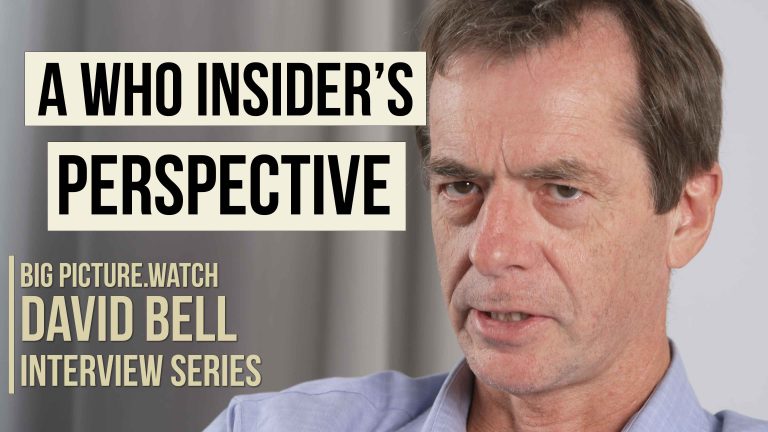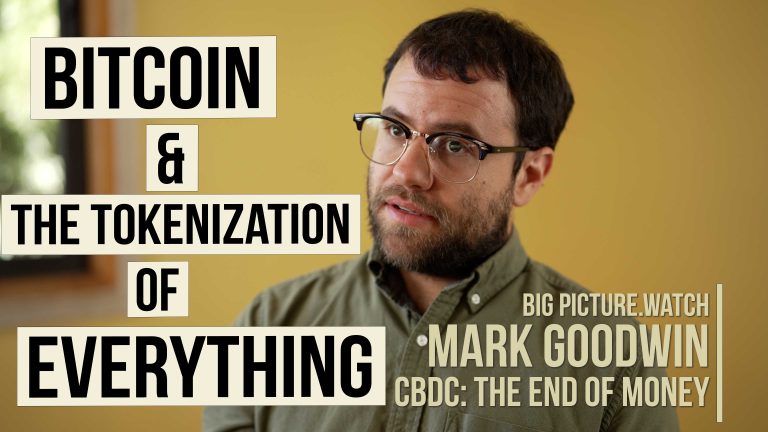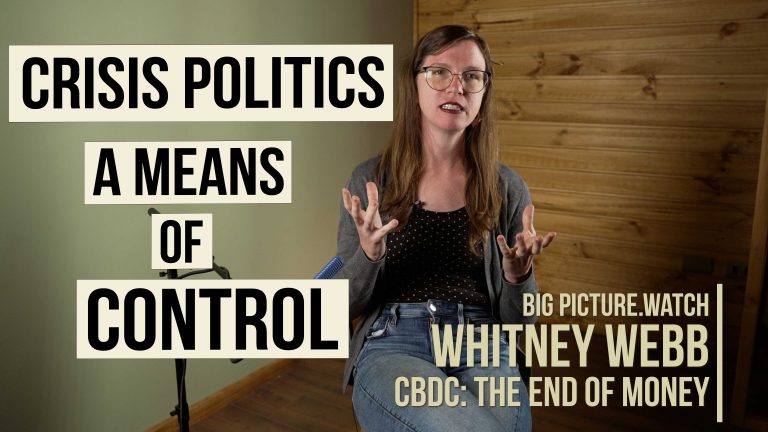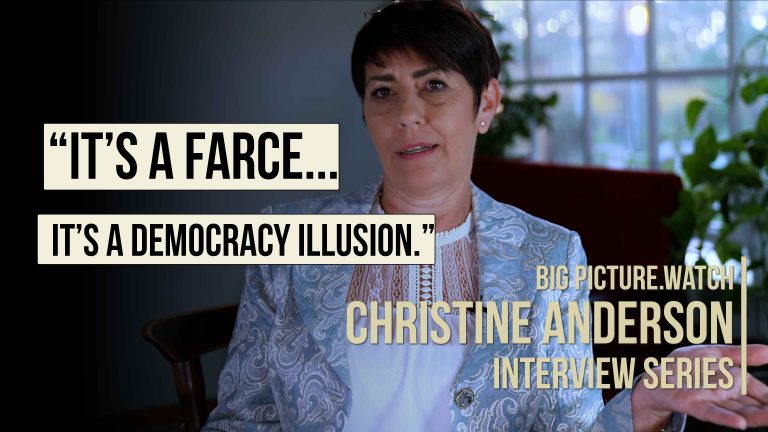Applied Behavioral Scientist | Patrick Fagan
Patrick is an accomplished applied behavioral scientist with over a decade’s experience ‘turning minds into money’. That is, he takes psychology academia and practically applies it in the real world. We spoke together on a panel and I was impressed by his presentation in dissecting the behavioral strategies used by the WHO and governments during the covid period.
Sign up for news on more interviews like this:
bigpicture.watch/newsletter/
For over a decade Patrick has been running research to help clients understand their customers and improve their products and communications, using a whole range of social influence techniques.
In this candid personal interview he describes his personal dilemma working in an industry using methods to ‘nudge’ the public opinion for clients. He comments on the difference when rendering his service to a company to sell products, such as Coca Cola, where it’s clear and honest in the mission to sell products. But when governments worldwide embark on a moral crusade under the banner of a public health emergency, this raises serious concerns for the direction of society. With CBDCs and digital IDs being pushed heavily now, free society is under imminent danger of being lost.
When the WHO was coordinating lockdowns, masks and the jab rollout using sophisticated psychological messaging strategies, Patrick could see the strategies used clearly. In this interview he dissects the science of social influence governments, industry and oligarchs used against our better judgment.
This interview is truly a graduate/executive level lesson on the science of social influence from one of the industry’s best.
Remember all those public health text messages we received during the covid period? He breaks down one MSM message the NHS sent to Brits, where in a 19 word sentence, they’ve managed to fit six nudges.
“You have reached the top of the queue and are a priority for getting a free NHS COVID 19 vaccine.”
The nudges used are Social Proof, in saying that there’s a queue because they’re inferring that it’s popular and therefore it must be good and trustworthy by saying you’ve reached the top of the queue. The other nudge tactics used are reciprocity, scarcity, messenger effect, commitment and consistency, ego appeal and priority.
Please support producing interviews to help people see the Big Picture.
Patrick points out how we all have certain defense mechanisms, or “cognitive biases that stop us from being traumatized. The brain won’t let you hurt it, so that’s where things like denial come into place.”
One by one Patrick outlines these biases as follows:
1.Willful Blindness: Also known as the ostrich effect, where people won’t look at something that’s potentially psychologically traumatic. One study found that when the stock market is doing poorly, people are less likely to log into their investment apps, which doesn’t make sense. But people don’t like to look at painful information.
2. Cognitive Dissonance: If we encounter something that doesn’t fit our worldview, it’s painful and creates a psychological tension and frustration. Dissonance. So we might just deny that something exists, or we might use thought stoppers like, Oh, there are conspiracy theorists. I don’t have to listen to what they are saying.
3. System Justification: This is about the fact that if you’re raised in a system, in an institution like a country or a society, and you’ve benefited from it and you’ve had a good time and so on, you can’t comprehend really, you can’t countenance the idea that the system might be wrong, that it could be immoral or broken.
4. Terror Management Theory: We don’t like to think about our mortality. We’re all essentially decaying into dust. And that’s quite a scary thought. So we attach ourselves to authorities or existing powerful structures to feel more secure.
5. Conformity: If everyone believes something, we assume we must know what they’re talking about. And also, from an evolutionary point of view we don’t want to disagree because it could be risky to do so.
6. In-Group: If information comes from them, the outgroup, we are less likely to accept it or believe it. So if something comes from the anti-vaxxers or the conspiracy theorists or even from the Republicans, people shut down immediately because it doesn’t it doesn’t fit our tribal worldview.
7. Cognitive Misers: We all have limited attention spans, limited time, limited physical energy. We don’t have the time or the energy to process all this information. So we have to go by our gut. We have to trust authority, to trust the crowd about certain things.
8. Learned Helplessness: When people feel that they don’t have any control over anything, they won’t even bother to try. When you say maybe something malevolent might be happening or some incompetence that I like, I just don’t want to know. I don’t want to hear about it. There’s nothing I can do about it. So why are you telling me?
9. Authority: As cognitive misers, we have to trust authority figures when they tell us something. We can’t look at all of the science of things ourselves. So we have to trust the experts, those who know what they’re talking about.
10. Regression: In our hearts we all like to submit to something, we all kind of want to go back to being a child. It’s very comfortable being told what to do. Being an adult and taking risks and responsibilities takes effort and is scary. Most people don’t like to do it. All people in some respect look for some kind of structure, some kind of authority to tell them what to do. It could be it could be religion. It could also be the government. It doesn’t matter as long as there’s some kind of structure to help save people from the chaos.
“The point of propaganda is not to change people’s minds, but to humiliate them, to show them who’s boss. So maybe by building up hope and letting it down again, that’s what people are doing.”
Patrick feels that “I think voting is the illusion of control or the illusion of choice. It creates false hope. It makes people think that they have a say and they have control in a system that they don’t. And it also has a kind of cathartic effect. So anthropologically, there’s something called the killing of the King in a book called The Golden Bough, But there’s kind of this anthropological ritual where we see leaders as kind of a scapegoat and we vent their frustrations onto them… If people realized that that would be very dangerous to the power structure.”
“You have to have these two sides that feed each other and the most powerful thing you can do is kind of step away from that… The only dogs that Pavlov couldn’t conditioned were those who didn’t even pay attention to the battles in the first place… So the best thing is try not to engage with it at all.
So I spoke to a magician for my new book and I asked him how do you not get tricked by magicians? And he said, If you don’t want to get tricked, don’t go to the show.”
Learn from this interview. Take notes.
Sincerely,
James Patrick

